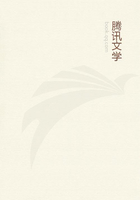Of the Motives of Pure Practical Reason.
What is essential in the moral worth of actions is that the moral law should directly determine the will.If the determination of the will takes place in conformity indeed to the moral law, but only by means of a feeling, no matter of what kind, which has to be presupposed in order that the law may be sufficient to determine the will, and therefore not for the sake of the law, then the action will possess legality, but not morality.Now, if we understand by motive (elater animi) the subjective ground of determination of the will of a being whose reason does not necessarily conform to the objective law, by virtue of its own nature, then it will follow, first, that not motives can be attributed to the Divine will, and that the motives of the human will (as well as that of every created rational being) can never be anything else than the moral law, and consequently that the objective principle of determination must always and alone be also the subjectively sufficient determining principle of the action, if this is not merely to fulfil the letter of the law, without containing its spirit.**We may say of every action that conforms to the law, but is not done for the sake of the law, that it is morally good in the letter, not in the spirit (the intention).
Since, then, for the purpose of giving the moral law influence over the will, we must not seek for any other motives that might enable us to dispense with the motive of the law itself, because that would produce mere hypocrisy, without consistency; and it is even dangerous to allow other motives (for instance, that of interest) even to co-operate along with the moral law; hence nothing is left us but to determine carefully in what way the moral law becomes a motive, and what effect this has upon the faculty of desire.For as to the question how a law can be directly and of itself a determining principle of the will (which is the essence of morality), this is, for human reason, an insoluble problem and identical with the question:
how a free will is possible.Therefore what we have to show a priori is not why the moral law in itself supplies a motive, but what effect it, as such, produces (or, more correctly speaking, must produce) on the mind.
The essential point in every determination of the will by the moral law is that being a free will it is determined simply by the moral law, not only without the co-operation of sensible impulses, but even to the rejection of all such, and to the checking of all inclinations so far as they might be opposed to that law.So far, then, the effect of the moral law as a motive is only negative, and this motive can be known a priori to be such.For all inclination and every sensible impulse is founded on feeling, and the negative effect produced on feeling (by the check on the inclinations) is itself feeling; consequently, we can see a priori that the moral law, as a determining principle of the will, must by thwarting all our inclinations produce a feeling which may be called pain; and in this we have the first, perhaps the only, instance in which we are able from a priori considerations to determine the relation of a cognition (in this case of pure practical reason) to the feeling of pleasure or displeasure.All the inclinations together (which can be reduced to a tolerable system, in which case their satisfaction is called happiness) constitute self-regard (solipsismus).This is either the self-love that consists in an excessive fondness for oneself (philautia), or satisfaction with oneself (arrogantia).The former is called particularly selfishness; the latter self-conceit.Pure practical reason only checks selfishness, looking on it as natural and active in us even prior to the moral law, so far as to limit it to the condition of agreement with this law, and then it is called rational self-love.But self-conceit reason strikes down altogether, since all claims to self-esteem which precede agreement with the moral law are vain and unjustifiable, for the certainty of a state of mind that coincides with this law is the first condition of personal worth (as we shall presently show more clearly), and prior to this conformity any pretension to worth is false and unlawful.Now the propensity to self-esteem is one of the inclinations which the moral law checks, inasmuch as that esteem rests only on morality.
Therefore the moral law breaks down self-conceit.But as this law is something positive in itself, namely, the form of an intellectual causality, that is, of freedom, it must be an object of respect;for, by opposing the subjective antagonism of the inclinations, it weakens self-conceit; and since it even breaks down, that is, humiliates, this conceit, it is an object of the highest respect and, consequently, is the foundation of a positive feeling which is not of empirical origin, but is known a priori.Therefore respect for the moral law is a feeling which is produced by an intellectual cause, and this feeling is the only one that we know quite a priori and the necessity of which we can perceive.















